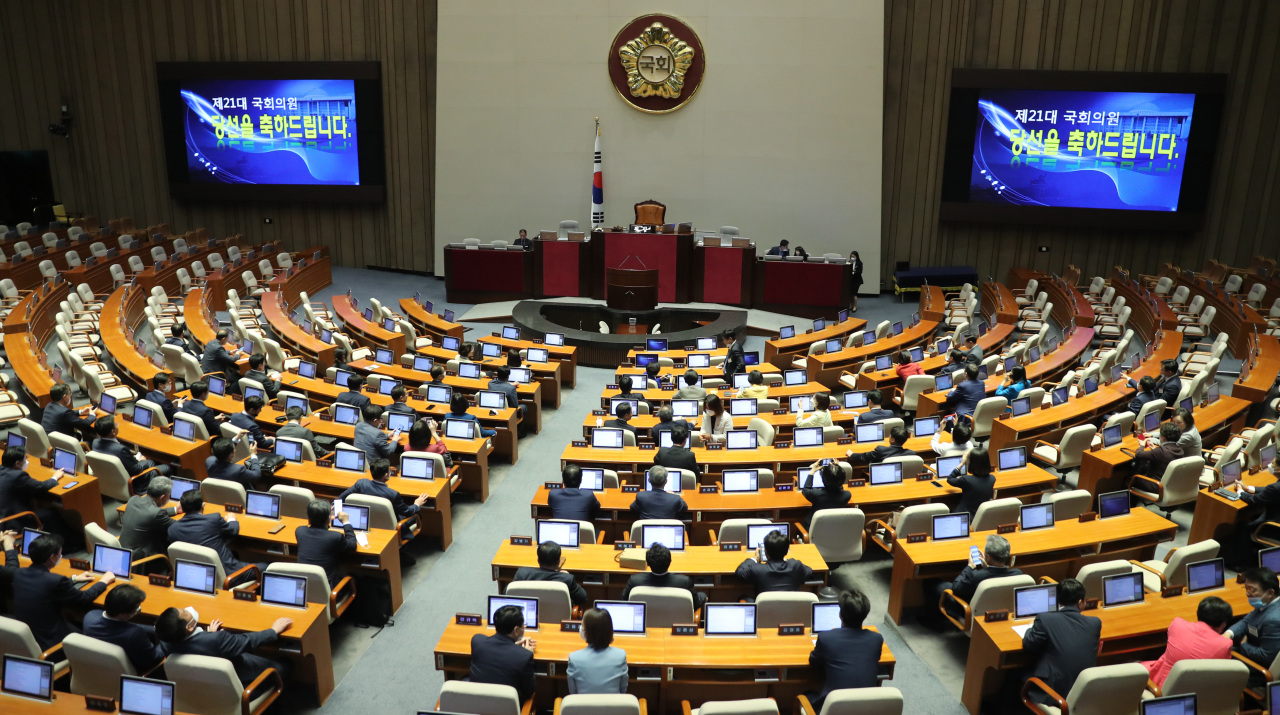 |
(Yonhap) |
The 20th National Assembly held its final plenary session Wednesday and approved 141 pieces of legislation, including a bill to prevent online sex crimes and another addressing historical human rights violations committed by the state.
The sex crime bill obligates service providers, including internet giants Naver and Kakao, to remove illegal pornographic materials and block access to them.
Recently the so-called “Nth Room case” caused a furor over the circulation of illegal sexual content via various internet platforms. It came out that a Telegram chat room operator had coerced at least 103 people, including 26 underage girls, into performing degrading sex acts so he could share their photos with 260,000 paying users in chat rooms.
Han Sang-hyuk, chairman of the Korea Communications Commission, said the bill would ensure that internet service providers take all possible measures to prevent the recirculation of materials produced through sexual abuse, which typically are shared in secret chat rooms.
“Such action is needed because the damage can be much greater if the materials are circulated publicly,” Han said.
Other bills on the table at Wednesday’s plenary session included a revision to the employment insurance act to include artists as workers so they can receive employment insurance. It passed too.
“Every single bill holds the necessary content for the people’s lives. I feel relieved that we could handle various pending issues during the last plenary meeting,” said Kim Tae-nyeon, floor leader of the ruling Democratic Party.
Lawmakers also passed a bill ditching the government-approved digital certificate that has been used for the last 21 years to verify customers’ identity so they can transfer funds electronically. Now private firms are free to introduce other verification methods such as blockchain, cloud, face recognition and fingerprint scanning.
A revision to the Immigration Control Act also cleared a legislative hurdle, enabling the authorities to punish foreign nationals who fill out false information on arrival cards, possibly impeding quarantine efforts. The bill was a follow-up to legislation on the new coronavirus pandemic.
One bill that was the focus of great attention addressed historical human rights violations committed by the state. It revives a government body called the Truth and Reconciliation Commission, which was established in 2005 to investigate incidents that occurred between 1910, when Japan colonized the Korean Peninsula, until 1993, which marked the end of authoritarian rule here with the election of President Kim Young-sam. The commission completed its original four-year mandate in April 2010.
This means long-buried truths can emerge. The bill paves the way for the commission to look at decades-old cases -- for example, the enslavement and abuse of thousands of homeless and disabled people by military dictators at a vagrants’ facility called Brother Home, which the government operated in the 1970s and 1980s to beautify the streets.
By Park Han-na (hnpark@heraldcorp.com)






![[Today’s K-pop] Blackpink’s Jennie, Lisa invited to Coachella as solo acts](http://res.heraldm.com/phpwas/restmb_idxmake.php?idx=644&simg=/content/image/2024/11/21/20241121050099_0.jpg)
